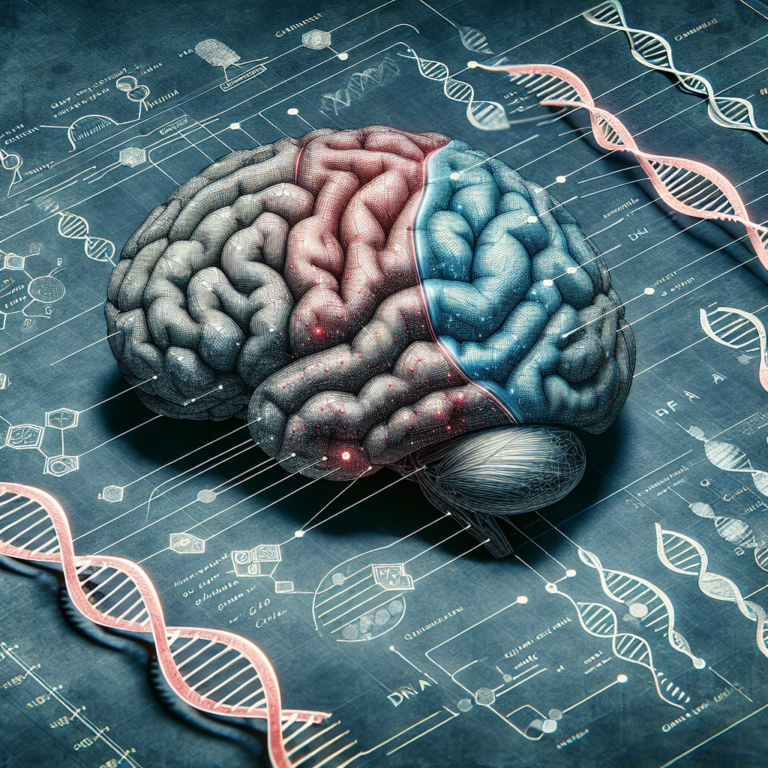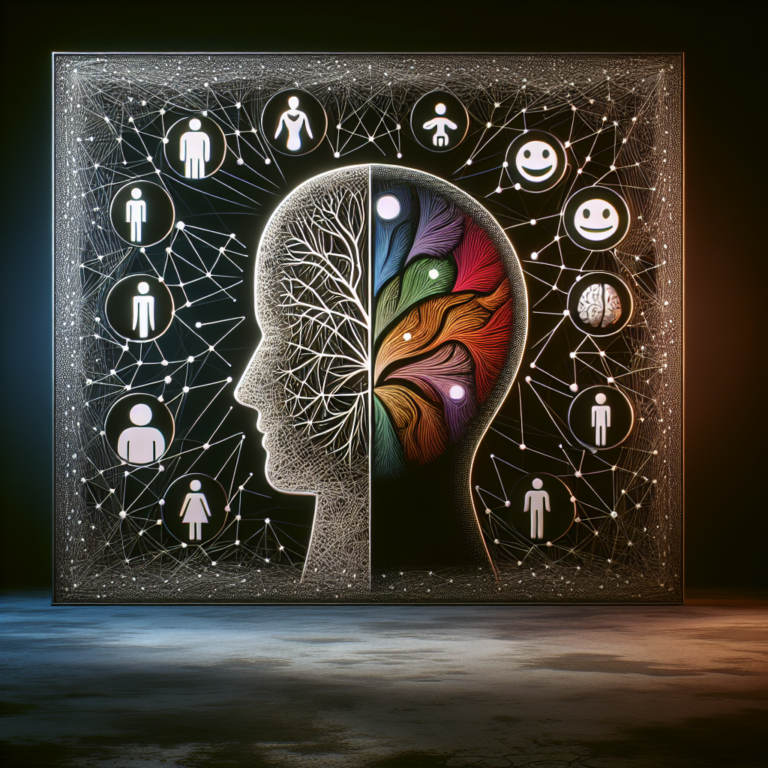The Ultimate Guide to the Effects of Substance Abuse on the Brain
Introduction: The Critical Intersection of Substance Abuse and Neurology
The human brain, a remarkably complex organ, governs our thoughts, emotions, and actions. However, its intricate balance can be severely disrupted by substance abuse, leading not only to addiction but also to profound changes in behavior and cognitive function. Understanding the effects of substance abuse on the brain is essential for recognizing the dangers of addiction and the importance of mental health awareness. Today, we delve into the far-reaching impacts that various substances have on the brain, illustrating how these effects can alter our very identity and existence.
When we speak of substance abuse, we are addressing a wide spectrum of substances, from legal drugs like alcohol and prescription medications to illegal narcotics. Each of these substances interacts with the brain in unique ways, leading to alterations in the neurological pathways that dictate our behavior, decision-making, and emotional regulation. This article not only presents the scientific revelations surrounding these effects but also offers insights into real-world applications, empowering individuals to make informed choices about their health and wellbeing.
Understanding the Brain: Structure and Function
To appreciate the effects of substance abuse on the brain, it is important to understand the brain’s anatomy and the vital functions of its various parts. The brain is composed of several main areas:
- Cerebrum: Responsible for higher brain functions such as thought, action, and sensory processing.
- Cerebellum: Coordinates movement and balance.
- Brain Stem: Controls vital functions like breathing and heart rate.
Table 1: Key Brain Areas and Their Functions
| Brain Area | Function |
|---|---|
| Cerebrum | Higher-level processes (thinking, decision-making, emotions) |
| Cerebellum | Motor control, coordination of voluntary movements |
| Brain Stem | Autonomic functions (breathing, heart rate) |
The Reward System: A Gateway to Understanding Substance Abuse
One of the most crucial components of the brain when discussing the effects of substance abuse on the brain is the reward system, which includes the nucleus accumbens, the ventral tegmental area (VTA), and the prefrontal cortex. This system is responsible for feelings of pleasure and reinforcement.
Substances like drugs and alcohol often hijack this reward system, leading to an influx of dopamine—a neurotransmitter associated with pleasure. This rush of dopamine reinforces the behavior, making individuals more likely to repeat the substance use, even in the face of negative consequences.
Case Studies of Substance Abuse and Neural Impact
Case Study 1: The Impact of Alcohol
Research has shown that chronic alcohol abuse leads to significant structural and functional changes in the brain. One study published in the journal Alcoholism: Clinical & Experimental Research found that individuals with alcohol dependence exhibited a decrease in the volume of the prefrontal cortex and the hippocampus—areas crucial for decision-making and memory.
Relevance: This case highlights the long-term cognitive impacts of alcohol, which can lead to poor life choices and memory impairments, further perpetuating a cycle of addiction.
Case Study 2: Cocaine and Brain Function
Cocaine use has been linked to impairments in working memory and attention. A study from the Journal of Neuroscience illustrated that individuals who abused cocaine exhibited diminished connectivity between the striatum and other regions of the brain responsible for executive functions.
Relevance: This demonstrates that the effects of substance abuse on the brain are not just physiological but also deeply affect mental capacities, leading to challenges in daily functioning.
Case Study 3: Opioids and Cognitive Decline
The opioid crisis has prompted extensive research into the effects of opioids on brain health. Findings published in The American Journal of Psychiatry revealed that chronic opioid use significantly affected the brain’s ability to process information, leading to cognitive deficits in tasks requiring focus and attention.
Relevance: Recognizing the cognitive decline associated with opioids is crucial in understanding the broader implications of addiction and developing effective interventions.
The Neurobiological Mechanisms of Addiction
To grasp the effects of substance abuse on the brain, we must explore the neurobiological mechanisms underlying addiction:
- Dopaminergic Pathway Activation: Substances often increase dopamine levels, leading to the initial feelings of euphoria.
- Long-Term Neuroadaptations: With repeated use, the brain adjusts to these elevated levels of dopamine, leading to tolerance and withdrawal symptoms.
- Changes in Brain Structure: Prolonged substance abuse can lead to physical changes in brain structure, including decreased gray matter and altered white matter integrity, impacting cognitive functions.
Chart 1: Stages of Addiction and Their Effects on the Brain
| Stage | Brain Changes | Effects on Behavior |
|---|---|---|
| Experimentation | Temporary dopamine spike | Euphoria, pleasure |
| Regular Use | Increased tolerance; changes in neurotransmitter levels | Craving, heightened risk-taking |
| Dependence | Structural changes in reward pathways | Withdrawal symptoms, compulsive behavior |
| Addiction | Structural and functional impairments | Poor decision-making, cognitive decline |
Psychological Effects of Substance Abuse on the Brain
Beyond the physical changes, substance abuse profoundly affects mental health. Anxiety, depression, and other comorbid disorders often coalesce with addiction, creating a multifaceted challenge.
Dual Diagnosis: The Link Between Substance Abuse and Mental Illness
Many individuals with substance use disorders also experience mental health disorders. This co-occurrence, known as dual diagnosis, complicates treatment plans and outcomes. Studies reveal that treating both addiction and mental illness simultaneously leads to better recovery outcomes than treating one without the other.
Strategies for Recovery: Reversing the Effects
Understanding the effects of substance abuse on the brain is vital, but so is knowing how to recover from these impacts. Here are some actionable strategies that can assist in healing and recovery:
- Therapy and Counseling: Engaging in cognitive-behavioral therapy (CBT) and other therapeutic practices can help address the underlying issues leading to substance abuse.
- Medication: Certain medications can ease withdrawal symptoms and help manage cravings.
- Support Groups: Organizations like Alcoholics Anonymous (AA) and Narcotics Anonymous (NA) provide community support and accountability.
- Healthy Lifestyle Changes: Exercise, nutrition, and mindfulness practices can aid brain recovery and overall well-being.
Conclusion: Embracing Recovery and Understanding
In navigating the complex landscape of substance abuse, understanding the effects of substance abuse on the brain is pivotal not just for those battling addiction but also for their loved ones, support networks, and society at large. Armed with knowledge, we can foster compassion and develop effective strategies to combat addiction and facilitate recovery.
As we move forward, let us remember that every individual’s journey is unique, and each step towards understanding and healing signifies hope. By embracing community, seeking help, and committing to recovery, we can overcome the challenges posed by substance abuse and reclaim the power of a healthy mind.
FAQs: Common Questions About Substance Abuse and Its Effects on the Brain
1. What are the primary effects of substance abuse on the brain’s structure?
Substance abuse can lead to structural changes in the brain, including reduced gray matter and altered white matter pathways, affecting cognitive functions such as memory and decision-making.
2. Can the effects of substance abuse on the brain be reversed?
Yes, many brain changes can improve over time with sustained abstinence, therapy, and positive lifestyle changes, but some effects may be long-lasting.
3. How does addiction affect emotional regulation?
Addiction can undermine the brain’s ability to regulate emotions, often leading to increased anxiety, depression, and mood swings due to alterations in the amygdala and prefrontal cortex.
4. Is there a link between substance abuse and mental health disorders?
Yes, substance abuse often co-occurs with mental health disorders, creating a dual diagnosis that complicates treatment and recovery.
5. What steps can one take to support someone struggling with substance abuse?
Offer emotional support, encourage them to seek professional help, attend support groups, and educate yourself about the condition and available resources.
By understanding the complexity surrounding the effects of substance abuse on the brain, we not only empower ourselves with knowledge but also create a more compassionate society capable of addressing the issues of addiction effectively.

















